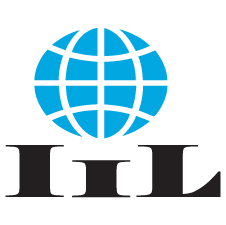The Agile frameworks have proven themselves to be more adept in dealing with this uncertainty. But Agile isn’t just about following a different way of working.

Change isn’t coming, it’s already here. The project environment is becoming more volatile, uncertain, complex, and ambiguous. Project management and project managers must transform and evolve in order to keep up with these changes.
Agile has been a disruptor in the field of project management, having over 20 years of successes and benefits to organizations that have adopted their frameworks.
The Agile frameworks have proven themselves to be more adept in dealing with this uncertainty. But Agile isn’t just about following a different way of working.
What do you need to learn, do, and become in order to continue in the current and future environment? It is a powerful combination of knowledge, competencies, and mindset.
In an increasingly complicated project environment, this course provides participants with the knowledge needed to not only survive but thrive.
Who Should Attend
Traditional project managers transitioning to Agile
Agile project managers looking to reinforce their skills and mindset
Program Managers, PMO, and management who need to understand how their PMs will be successful in an Agile environment
What You Will Learn
At the end of this program, you will be able to:
Evaluate the changing project environment and the needed knowledge, skills, and behaviors
Demonstrate innovative project manager competencies of leading change, servant leadership, and focus on value
Utilize Lean and Agile principles to maximize value and improve project performance
Construct a hybrid Agile model that is unique to your project
Assess your role in Business Agility as an Agile Project Manager
Syllabus
Getting Started
Introductions
Workshop orientation
Expectations
Foundations
Recap: What is Agile?
A changed project environment
The future project manager
Agile Project Management Competencies
Focusing on value
Championing change
Servant leadership
Coaching / mentorship
Facilitation
Lean and Agile Principles
Optimizing flow
Making things small
Continuous planning
Just-In-Time requirements
Visualizing work
Hybrid Agile Considerations
Considering a Hybrid Approach
Examining Strengths and Weaknesses of Each Approach
Selecting Waterfall / Agile Roles, Practices, and Techniques
Reviewing Three Hybrid Scenarios
Constructing the Hybrid Project
Implementing Agile
Pitfalls and Concerns
Agile in the Organization
Business Agility
Summary and Next Steps
About IIL
Our deepest purpose as a corporate training company is to enable growth and success of individuals, teams and organizations with long-lasting, high quality learning in a technology-driven world.
International Institute for Learning (IIL) is a leader in the development and delivery of customized learning programs, online conferences, professional certification credit and preparation courses, organizational learning solutions, and consulting.
IIL has forged strategic partnerships with leading global professional certification companies to help teams and professionals advance critical business skills.
Our clients include global corporations, multinational companies, small and medium enterprises, public sector, nonprofits, and the learning public.
Headquartered in New York City, IIL has teams located strategically around the world, a stellar roster of professional international trainers, and award-winning Media and Printing divisions providing end-to-end solutions.
Our Values
At IIL, our core values—Intelligence, Integrity and Innovation—inform all that we do and accomplish with every customer, partner and colleague.
Our Story
Founded by CEO E. LaVerne Johnson, International Institute for Learning is a leading training and corporate solutions firm with headquarters in New York City and wholly-owned operating companies located strategically around the world.
Ms. Johnson launched IIL in 1991 with a vision to provide the highest quality training and business solutions to firms, governments, and nonprofits who seek increased operational efficiency and effectiveness.
Recognizing the tremendous potential of project, program and portfolio management (PPPM) to accomplish that goal, she anchored IIL around PPPM and related disciplines such as Business Agility, Business Analysis, Leadership, Business Relationship Management, Lean Six Sigma, IT Service Management, Diversity, Equity and Inclusion (DEI), and Sustainability —a focus that remains with IIL today.
One of the first training organizations in the industry to launch live online learning solutions beginning in 2001, IIL today delivers live, virtual training and three global proprietary annual online conferences, attracting professionals, learners, and organizations from around the globe.
© 2025 coursetakers.com All Rights Reserved. Terms and Conditions of use | Privacy Policy